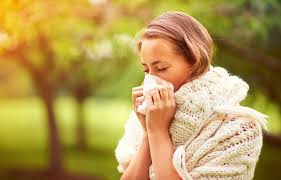You can treat allergy symptoms with over-the-counter and prescription medications, as well as allergy shots. Lifestyle changes like using air filters and avoiding triggers are important, too.
Types of Allergy Medications
Learn all about the different over-the-counter and prescription medicines that can help ease annoying symptoms.
What Are Antihistamines?
When medicine is needed to stem allergy symptoms, antihistamines are often first in line. Find out how they can help and learn about possible side effects.
How Decongestants Work
When allergies make your nose stuffed up, an antihistamine generally won't help. But a decongestant might.
Anticholinergic Nasal Allergy Sprays
Atrovent nasal spray can help with the runny nose that may come with allergies. Find out if it’s right for you.
Steroid Nasal Sprays
Nasal steroid sprays are available over the counter or by prescription. They are often the first treatment recommended for nasal allergies.
Allergy Eye Drops
Allergy eyedrops are liquid medicines used to treat symptoms of eye allergies.
Leukotriene Inhibitors
Montelukast (Singulair) is a prescription drug that reduces congestion in your nose, cuts down on sneezing, itching, and eye allergies, and reduces inflammation in your airways.
Mast Cell Inhibitors
Cromolyn sodium (Nasalcrom, Crolom), a mast cell inhibitor, is used to prevent allergic symptoms like runny nose and itchy eyes.
Allergy Shots
Allergy shots help your body get used to things that trigger an allergic reaction. They aren't a cure, but in time your symptoms may improve and become less frequent.
When to Use Your Auto-Injector
An auto-injector -- such as EpiPen, Twinject, or Auvi-Q -- can treat extreme allergic reactions with an early, life-saving dose of epinephrine.



 Contact Us
Contact Us






 Hospitals
Hospitals
 Doctors
Doctors
 Diagnostic
Diagnostic
 Pharmacy
Pharmacy
 Health Tips
Health Tips
 Blog
Blog

























Comments